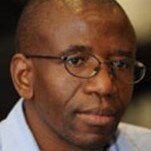
Senior researcher / social and institutional scientist, International Water Management Institute (Ghana)
Everisto Mapedza is a senior social and institutional scientist at the International Water Management Institute. His expertise is focused on water institutions, water governance, gender, drought and socially inclusive rural development more generally.
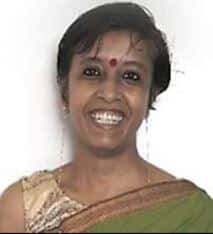
Dr. Mansee Bal Bhargava is a transdisciplinary scholar of built environment that includes architecture-design-development-planning-management-governance. Her twenty-five years of entrepreneurship, research and education of large-scale developments have focus on the sustainability and liveability aspects. She has deep concerns on the rising water distress from drought, flood, and the conflicts of ownership, access, equity, sanitation, gender, and transboundary. She is developing her understanding of water governance and sustainability. She aspires to dedicate herself to water conservation through consulting, advisory, research, writing, speaking, and engaging with community on the ground. She is also on a mission to inculcate ecological research aptitude and attitude among the youth. She believes that research, as a systematic investigation, must lay the foundation of any collective decision and action. She advocates that science with conscience is crucial to build a sensitive society and that we are left with the only choice of peace & ecology for a sensible evolution of humanity. Now a days, she has extensive public speaking engagements on water, women, built environment and motivational.

Professor, Department of Politics and Public Administration; Director, Centre for Civil Society and Governance; Co-Director, Centre for Water Technology and Policy, The University of Hong Kong
Danny’s research has evolved around common-pool resource management, irrigation policy, civil society, sustainability, and rural revitalization, with a focus on institutional design and performance. Danny has led a variety of action research projects on sustainability, ranging from rural revitalization and corporate sustainability to social inclusion and urban commons. A major project that Danny is currently working on examines how a collaborative approach helps revitalize rural communities, which won the UNESCO Asia-Pacific Awards for Cultural Heritage Conservation 2020. Building on the success, an international consortium of four major universities in Asia Pacific has been formed to conduct comparative research and to promote rural sustainability using the commoning approach. Danny finished his undergraduate study at The Chinese University of Hong Kong; and received a Ph.D. in Public Policy from Indiana University, Bloomington.

Professor School of Public Policy & Management, Tsinghua University
Prof. Yahua Wang has recently been appointed as IASC’s national coordinator for China.
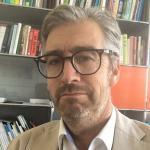
Director Institute of Social Anthropology, Universitat Bern
Tobias Haller, is Extraordinary Professor in Social Anthropology at the Institute of Social Anthropology, University of Bern, Switzerland and lecturer at the ETH Zurich. He studied at the University of Zurich social anthropology, geography and sociology and made his PhD and his habilitation at the University of Zurich. After being project leader in the NCCR North-South, he was appointed as Director of the Swiss Network for International Studies in Geneva in 2008. 2009 he became Associate Professor at the Institute of Social Anthropology in Bern until 2014 when he received an extraordinary professorship at the same institute.
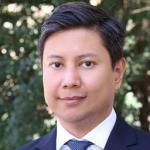
Professor (Jun) / Chair for Environmental Sociology & Director Social Learning and Environmental Governance (SLEG) Lab, Martin Luther University Halle-Wittenberg (Germany)
Coming Soon
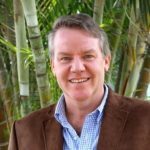
Senior Scientist (Anthropologist) at CIFOR
Peter Cronkleton is Senior Scientist (Anthropologist) at the Center for International Forestry Research conducting research on smallholder forestry, forest policy and governance. Peter is a specialist in community forestry development, forest tenure, social movements and participatory approaches to research. Currently based in Peru, he has worked as a researcher and development practitioner in Latin America for more than 21 years, concentrating on the western Amazon but also conducting research in Central America and Africa. A graduate of the University of Florida (M.A. 1993, Ph.D. 1998) he has recently focused his research on institutional change in forest communities during periods of policy reform.


Professor in the Graduate Program in Architecture and Urban Planning at the Fluminense Federal University
Email Website
Lúcia Capanema-Alvares graduated in Architecture and Urbanism at the Federal University of Minas Gerais, obtained a Master’s degree in Urban Planning at Memphis State University and a Ph.D. in Regional Planning at the University of Illinois at Urbana Champaign. She has two postdoctoral experiences, at IPPUR (Federal University of Rio de Janeiro) and at the Politecnico di Milano. She is a professor in the Graduate Program in Architecture and Urban Planning at the Fluminense Federal University and was a visiting professor at the Department of Urbanism and Urban Studies at the Polytechnic of Milan. She is currently working on her 5th book, “Extended mobility and Public Spaces: Furthering the right to the city in the Global North and South”.

Luciano Régis Cardoso is a biologist and geographer, specializing in Studies of the Theatre of the Oppressed, with a Master’s degree in Protected Natural Spaces. He has 16 years of professional experience in the environmental field, with the last 14 years focused on governance and management of protected and conserved areas. Luciano has managed two protected areas in Brazil and volunteered in areas in Brazil, Peru, and Portugal. He has also conducted studies in Ireland and Spain. Currently, Luciano works as a Participatory Management Analyst at the Mamirauá Institute for Sustainable Development, where he collaborates with territories conserved by Indigenous Peoples and traditional communities in Central Amazonia. He is a founding member of ReLLAC-J, an honorary member of the TICCA Consortium, a member of the International Association for the Study of the Commons, and a member of the EAGL-Brazil for the IUCN Green List Program.
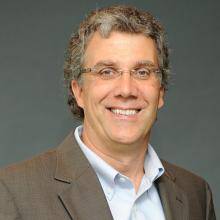
Professor Environmental Conservation; interim director UMass Amherst School of Public Policy; associate director, National Center for Digital Government, University of Massachusetts at Amherst (US)
Dr. Charles (Charlie) Schweik is a Professor in the Department of Environmental Conservation and School of Public Policy at the University of Massachusetts, Amherst and is Associate Director of the Public Interest Technology Initiative at UMass. In the area of Commons and Commoning, he specializes in the Knowledge Commons area and has studied Commons-based Peer Production for over 20 years. Among other writings, he is the author of the open-access book Internet Success: A Study of Open Source Software Commons, available at https://works.bepress.com/charles_schweik/29/ and has active research studying how nonprofit organizations like the Apache Software Foundation are working to help sustain open source software commons. He leads another Knowledge Commons project called World Librarians where open-access information is provided to offline rural schools in countries like Malawi.
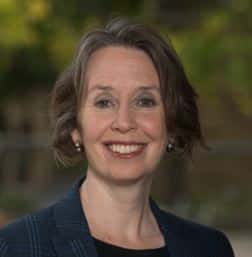
Interdisciplinary Environmental Scientist, Lecturer, and Co-director for the Environmental Justice Working Group at Stanford University
Sibyl Diver, PhD is an interdisciplinary environmental scientist, a lecturer in the Earth Systems Program, and co-director for the Environmental Justice Working Group at Stanford University. She does community-engaged research on Indigenous water governance focusing on Pacific Northwest salmon watersheds. This includes research on co-management (or collaborative management) arrangements between Indigenous communities and state agencies, and decolonizing methodologies. Sibyl first engaged with Indigenous land rights and resource management twenty-five years ago as a Russian translator for international exchanges. Since then, she has worked on issues of Indigenous peoples and salmon around the North Pacific – in the Russian Far East, Alaska, Canada and the US, and is currently partnering with the Karuk Tribe on a social impact assessment of Klamath dam removal (California, US). Dr. Diver received her PhD in Environmental Science, Policy and Management from the University of California – Berkeley.
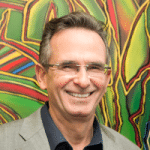
Professor, Development Studies, School of Social Sciences, University of Aukland, New Zealand
I have started my role as Dean (Research) for the Arts, Education and Law Group on 1 May 2024. I am originally from Germany, hold a PhD from the University of Hohenheim in Stuttgart, and was previously a Professor in Development Studies at the University of Auckland, Aotearoa New Zealand.
I have researched in the fields of global land and resource grabbing, climate mobilities and mobility justice, climate change adaptation, natural resource governance, tourism and development, development-induced displacement, post-disaster response and recovery, and community resilience. I have extensive research experience in various cross-cultural settings ranging from academic research to participatory action research, activist research and capacity building in Thailand, Cambodia, Indonesia, Laos, Vietnam, Japan, Fiji, Vanuatu, Samoa, Tonga, New Zealand, Niger, Benin and Yemen.
Over more than 20 years, I have managed large inter- and transdisciplinary projects from conception and implementation to successful completion in the Asia-Pacific region. I held research grants from the German Research Foundation, Volkswagen Foundation, the German Academic Exchange Service (DAAD), the Japan Society for the Promotion of Science, the Royal Society of New Zealand, the New Zealand Ministry of Foreign Affairs and Trade (MFAT), the New Zealand Ministry of Business, Innovation and Employment (MBIE), the European Union, the Worldwide Universities Network (WUN) and the Australian Centre for International Agricultural Research (ACIAR). I have recently started a new collaborative research project on “Micro-Mobilities and Circular Migration as Adaptive Strategies to Gendered Climate Risks in Fiji and Samoa” with collaborators from the University of the South Pacific and the National University of Samoa, funded by the Asia-Pacific Network for Global Change Research (APN).

Writer. Researcher at Wellington School of Architecture, Victoria University of Wellington
Coming Soon